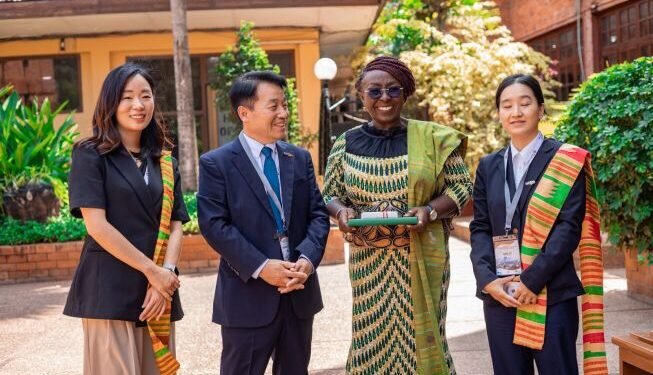Across Ghana, music is more than entertainment: it is identity, diplomacy, and increasingly, a growth industry.
The global rise of Afrobeats and renewed international attention to Ghanaian artists have filled streets, plazas, and makeshift stages with fans who want live experiences.
Yet many concerts that could be hallmark moments for the nation are constrained by an acute shortage of modern, appropriately-sized venues.
If Ghana is to convert cultural momentum into lasting economic and social benefits, it must expand its venue capacity and upgrade event infrastructure now.
Ethan Laurence, the Production Manager for Event Factory, has shared insights into the challenges his team faced during the setup for Sarkodie’s Rapperholic Homecoming Concert at the Baba Yara Sports Stadium in Kumasi.
Laurence explained that while the event was a huge success, the production process came with several logistical difficulties particularly in terms of space and infrastructure.
He revealed that the team had to navigate tight working conditions and limited setup areas, which made preparations for such a large-scale concert demanding and time-consuming.
Laurence emphasised the need for Ghana to invest in larger, purpose-built event spaces that can comfortably accommodate major concerts and large gatherings.
“We go through a lot during event setups because of limited space and infrastructure. Ghana really needs bigger venues to support the growing demand for large-scale concerts.”
Ethan Laurence
He further highlighted that with the rapid growth of the entertainment industry and the increasing demand for high-quality productions, expanding the country’s event infrastructure would greatly enhance the overall concert experience for both artists and audiences.
The Rapperholic Homecoming Concert, produced by Event Factory, drew massive crowds and received praise for its impressive stage design, lighting, and overall execution despite the challenges faced.
Several converging trends explain the surge in concert demand. Ghanaian artists and producers are enjoying greater global visibility through streaming platforms and international tours.

The growing middle class at home, coupled with an engaged youth population, increases local demand for live events. Also, the Ghanaian diaspora travels in large numbers for major performances and festivals, turning single events into nationwide economic opportunities.
The rise of music festivals and cross-border collaborations brings regional audiences to Accra, Kumasi, Takoradi and beyond. These forces combine to create consistent demand for venues that can host anywhere from a few thousand to tens of thousands of attendees with world-class production values.
Current Limitations
Ghana’s existing infrastructure was not designed for the scale and technical complexity modern concerts require. Many events are held in multipurpose stadiums that lack proper acoustics, sightlines, climate control, and backstage facilities.
Smaller theaters and clubs can’t accommodate mid-sized international acts, forcing promoters either to underbook or to stage events outdoors in ad-hoc settings compromising safety, sound quality, and attendee experience.
Logistical gaps, insufficient parking, unreliable public transport at event times, underdeveloped ticketing systems, and limited professional event management capacity, compound the problem.
These constraints lead to lost revenue, dissatisfied audiences, and missed opportunities to showcase Ghanaian culture on a grander stage.
Investing in larger, well-equipped venues delivers multiple returns. Concerts and festivals generate direct spending on tickets, food and beverage, merchandise, and accommodation. They stimulate upstream industries like sound and lighting, staging, security, and hospitality, and create jobs, both permanent and seasonal.
High-profile events attract regional and international visitors, raising Ghana’s profile as a creative tourism destination. Repeat cultural tourism is a sustainable revenue stream.
Regional Precedent and Opportunity
Success stories in the region show the potential payoff. Purpose-built arenas in East and Southern Africa have hosted international acts and conventions that drew visitors and media attention, helping to build local creative industries.

Ghana can replicate and tailor these models to local culture and market size, positioning Accra and key regional cities as entertainment hubs for West Africa.
The momentum behind Ghanaian music and festivals is not indefinite. As artists climb international charts and promoters consider regional tour legs, the country faces a choice: provide the infrastructure and capture the economic, cultural, and reputational benefits or watch opportunities flow to neighboring markets with better facilities.
By committing to a strategic, staged expansion of venue capacity backed by smart financing, regulatory clarity, and workforce development Ghana ensures its stages match the scale of its talent.
Investing in bigger, better venues is an investment in jobs, culture, and national brand one that will echo far beyond any single concert.
READ ALSO: Reporting of Irregularities Must Move Beyond Figures to Diagnostic Analysis -CDD-Ghana Fellow






















